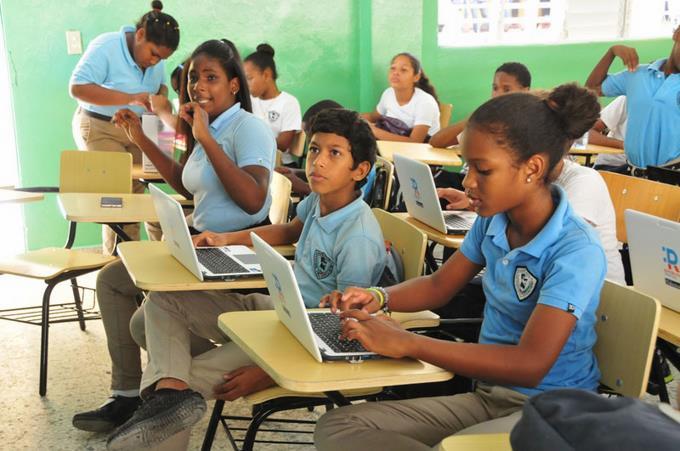
A feature in Listin Diario looks into how changes over the year in public education has not given the desired results. Teaching methods are different, technological tools have been introduced, but many of the new rules governing the education system have instead proven a headache for teachers. Listin Diario concludes that education is not better off, despite the millionaire investment by the government.
Listin Diario reporters interviewed four teachers to ask for their views on how education has evolved over the past 20 years. The period also encompasses the dedicating of 4% of the Gross Domestic Product (GDP) to education. This means RD$41 billion has been injected into the public education system.
Public school teachers consulted by Listin Diario reporters indicate that students show little interest in book reading given they have increasing access to the Internet. Student behavior is also an issue, say the teachers.
Inés Encarnación Evangelista has been a basic education teacher since 1993, and has been teaching for 26 years. The educator explained that the teaching method is one focused on developing competencies in students. Nevertheless, she says that at the same time the public educat system is now governed by ages and teachers have orders to pass young people. She says that as a result, students pass from one grade to the next without achieving the needed skills.
“This method has its good and bad parts. The good part is that students learn on their own, they have more freedom,” she says. But she says many students do not know how to fit into this new system and get distracted.
Pennsylvania Perez has been teaching for 11 years at the elementary level in the public sector. She complained that respect for the teacher has been totally lost and this has led to many chaotic situations. “We teachers no longer have authority and that comes from the neglect of parents to the education of their children,” she said.
In terms of teaching, Perez said strategies have changed. Now schools prepare children for life and make sure that young people develop their abilities through the method of constructivism, but that this is not enough since some students do not show interest in preparing themselves intellectually.
José Báez, a retired public sector teacher who taught for 35 years, says the old method of tests was better. He said students worked harder on their homework because at the end of the year they had to pass their exams.
“The teacher prepared a systematic plan for each lesson, motivated students to investigate, awakened their curiosity with dynamic work. But today all this technology has done a lot of damage because students just go to the Internet and copy and paste,” he said.
Baez said when there wasn’t much access to technology, the quality of education was better because the students had to read a lot and use their brains to find the answers. Besides, he also mentioned the relationship between the school and parents as a vital partnership that has weakened. He called for this partnership to be urgently restored.
Likewise, Yris Payano, a math teacher, said that today’s students have difficulty understanding the subject and that it is a mistake to promote children to sixth grade without basic knowledge of math operations as is happening every day in the country. “Students are not interested in learning and you can’t punish them because they feel supported,” she explained.
Read more in Spanish:
Listin Diario
2 January 2020

